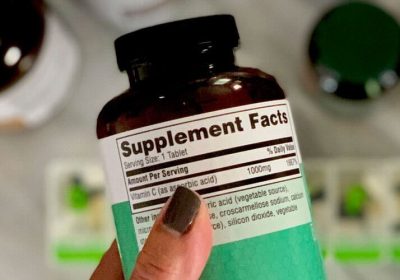Remember when RFK Jr. told us one of his first priorities was getting rid of all those nasty food additives that were being self-affirmed without any transparency as “Generally Regarded as Safe” or GRAS—the pathway that determines which ingredients can legally be added to food? Well, a new Congressional bill sponsored by a Republican senator has just been released, claiming it will strengthen transparency in the GRAS system. While the bill aligns with some of the key recommendations we made in our ground-breaking white paper on the subject, we are deeply concerned that this proposal would bury the FDA in red tape, shut down innovation, and limit access to the safe, natural ingredients consumers rely on. Action Alert!
THE TOPLINE
- While the new bill makes strides to increase transparency in the “Generally Recognized as Safe” (GRAS) system, in its effort to eliminate self-affirmed GRAS determinations, it would bury the FDA in red tape, create an unnecessary burden on companies selling ingredients which have no known risks in their intended use, and severely restrict innovation in food and supplement ingredients.
- By forcing tens of thousands of existing GRAS substances into a new, mandatory FDA notification process, the proposal would overwhelm the agency and could create a de facto pre-approval system favoring large corporations over smaller innovators.
- ANH supports targeted reforms that enhance transparency—such as a public GRAS register and risk-based framework—without dismantling the flexible system that allows safe, natural ingredients to reach consumers.
A Sweeping Overhaul in the Name of Transparency
Under the new proposal (aka the Better Food Disclosure Act), sponsored by Senator Roger Marshall (R-KS), every ingredient currently marketed as GRAS would have to submit a formal notice to the FDA within two years of the bill becoming law. That means over ten thousand ingredients—many of them long established as safe—would be swept into a new, mandatory notification process.
The bill proposes that once the FDA receives a notice, the agency could:
- Accept the submission and add the ingredient to a public GRAS list,
- Issue a preliminary rejection and demand additional data or a plan to phase out the ingredient, or
- Stay silent—after which, 180 days later, the ingredient would automatically be added to the GRAS list.
The bill also instructs the FDA to reassess food additives, color additives, and GRAS substances whenever “clear and convincing scientific evidence” supports further review. Following a rulemaking process, ingredients deemed unsafe could then be removed from the market.
While these steps are framed as common-sense reforms, the reality is far different.
A Bureaucratic Nightmare in the Making
By requiring all existing GRAS ingredients to go through a new submission process, the bill would unleash a regulatory tsunami. The FDA already lacks the capacity to handle its current caseload—now imagine adding thousands of new reviews within two years.
At the heart of the problem—and where the bill diverges greatly from our white paper proposal—the bill offers no “safe harbor” for time-tested, safe ingredients. Instead, the bill proposes a blanket burden across the board, regardless of potential risk or evidence of historical safe use. This would disproportionately impact smaller manufacturers of foods and supplements and deny many Americans access to ingredients that are both safe and beneficial to their health. It’s a far cry from the tiered risk assessment system we advocated for in our white paper.
By giving FDA authority to accept or reject notices, the bill replaces what could be a flexible, science-driven framework with a de facto pre-market approval system that mirrors Europe’s more restrictive model. It also places large burdens on any company including new dietary ingredients or new uses for existing ingredients, an approach that appears to be influenced by the EU’s onerous Novel Food Regulation.
More than that, if a manufacturer fails to make the submission deadline within its 120-day window simply because it lacks the necessary time or resources, the ingredient will automatically be deemed unsafe. This approach is analogous to the principle of Napoleonic law that assumes guilt if innocence cannot be proven, and it is a far cry from the presumption of innocence that has existed to prevent unfair punishment (burdens) on those convicted who are actually innocent (safe).
Like other ill-conceived reform efforts, this bill throws the baby out with the bathwater by eliminating self-affirmed GRAS determinations entirely—that is, the process that allows companies to independently establish safety based on expert review and publicly available data. While it’s true that the existing “self-GRAS” process can be exploited by unscrupulous companies adding unsafe ingredients to food because it currently lacks transparency, it is also a crucial pathway for many safe, natural ingredients to reach the market. This problem can easily be resolved by ensuring transparency of the self-GRAS pathway—as we have suggested in our white paper.
What is consistently ignored by many critics of the existing GRAS system is that many of the unsafe ingredients used by would-be reformers as examples of why self-GRAS must be eliminated—things like titanium dioxide, Red 40, Yellow 5, BHA, and BHT—were never self-affirmed as GRAS; they were fully approved following FDA scrutiny! Therefore, if you want to fix the problem, you can’t just eliminate self-GRAS and hope for the best. You need to fix the way the FDA does its risk assessments, something we again address in our white paper.
Who Pays the Price? Consumers and Small Innovators
The businesses most badly affected by this proposed overhaul would be small and mid-sized food and supplement companies—the very ones bringing innovative, healthy products to market. These firms often rely on natural ingredients with well-documented safety records but lack the resources to prepare complex GRAS dossiers for every component they use.
The result is predictable: larger corporations with deep pockets will dominate the market, while smaller players will struggle or disappear altogether. Consumers will face fewer choices, higher prices, and reduced access to functional foods and natural health products.
A Smarter Path Forward

We support the proposal’s move towards greater transparency, but it’s got there by mainly adopting an EU-influenced system that pushes the precautionary principle over the Paracelsian one. The Paracelsian principle that we advocate for in our white paper recognizes that all substances are toxic at some dose or exposure level, and that it is the dose or exposure that ultimately determines the toxicity or risk in the real world.
We also agree that reform is needed, but not reform that crushes innovation and creates more red tape. As mentioned above, at ANH-USA, we have outlined in our white paper a balanced approach to reforming GRAS that works both for consumers and industry.
>>> Download our white paper and media pack: Reforming GRAS: Food Safety Without Sacrifice.
Our proposed approach would:
- Create a public GRAS Transparency Register, allowing self-affirmed determinations to be visible for scientific and consumer review.
- Use a tiered risk framework that distinguishes between high-risk synthetic chemicals and low-risk natural compounds with a long history of safe use.
- Prioritize the removal of known hazardous ingredients—many of which were approved decades ago through outdated FDA reviews.
This approach enhances transparency and public confidence without dismantling the GRAS system that has supported safe innovation for decades.
Real Reform, Not Red Tape
We all want safer food, but this bill takes the wrong path. Instead of focusing on the true problem—dangerous chemicals that slipped through flawed FDA approvals—it creates a system that will bog down the agency, harm small businesses, and restrict consumer access to safe, beneficial products. That’s just not compatible with a MAHA (Make America Healthy Again) agenda over which RFK Jr. presides as HHS secretary.
Congress should reject this somewhat misguided proposal and pursue targeted, evidence-based reforms that promote both safety and choice. Real food safety reform requires transparency and accountability—not another layer of bureaucracy that only benefits Big Food.
Action Alert!



